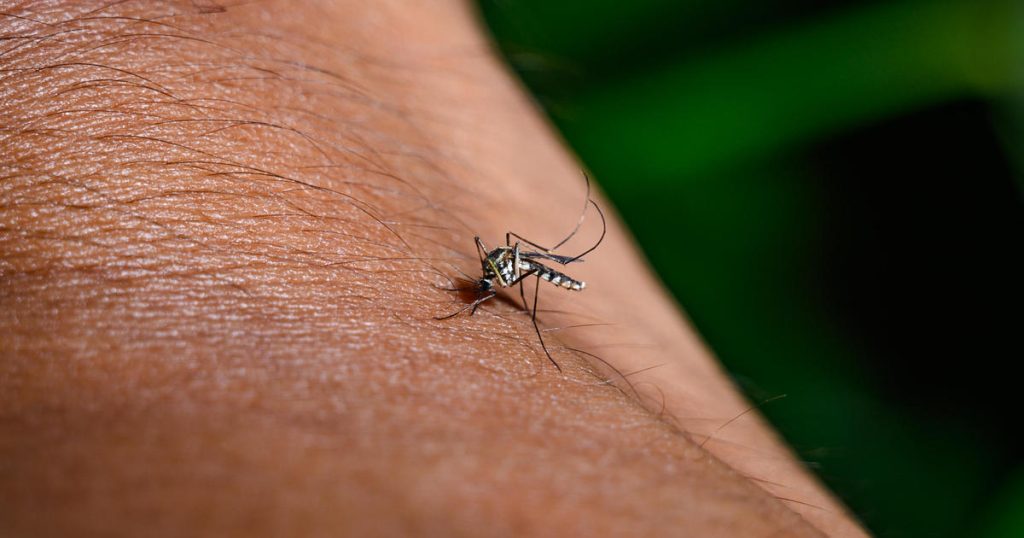The United States is seeing an increase in cases of mosquito-borne diseases, such as West Nile virus and eastern equine encephalitis (EEE). Eastern equine encephalitis, also known as Triple E, is a rare but potentially deadly virus spread by mosquitoes in certain swampy areas in states like Massachusetts. Horses are thought to be a host for the virus, which may explain the name “equine” in the virus title. Recent cases of EEE, including the death of a 41-year-old New Hampshire man and another man testing positive for EEE, West Nile, and St. Louis encephalitis have raised concerns about the spread of these diseases.
The Centers for Disease Control and Prevention (CDC) and state health departments are closely monitoring cases of EEE and West Nile virus, updating their data on a regular basis. As mosquito season in the U.S. lengthens due to climate change, there is a greater potential for the spread of these diseases. Even high-profile individuals like Dr. Anthony Fauci have been affected by mosquito-borne illnesses, emphasizing the importance of taking precautions to protect against these diseases. The maps provided by the CDC showing reported cases of EEE and West Nile virus highlight the areas where these diseases have been detected.
In addition to EEE and West Nile virus, mosquitoes can also transmit other diseases, such as dengue fever and the Oropouche virus. To reduce the risk of getting sick from mosquito bites, experts recommend using insect repellent, wearing protective clothing, staying indoors during peak mosquito activity times, draining standing water where mosquitoes breed, and taking other preventative measures. This is especially important for vulnerable populations, such as the elderly and immunocompromised individuals. By following these guidelines, individuals can lower their risk of contracting mosquito-borne diseases.
The spread of mosquito-borne diseases is a growing concern in the U.S., with cases of EEE, West Nile virus, and other illnesses being reported in various states. The increasing length of mosquito season due to climate change is contributing to the potential for disease transmission. Health officials, including the CDC, are working to track and monitor these diseases to better understand their spread and implement strategies for prevention. By taking proper precautions, such as using insect repellent and wearing protective clothing, individuals can reduce their risk of getting sick from mosquito bites.
As cases of mosquito-borne diseases continue to rise, it is important for individuals to be aware of the risks and take steps to protect themselves. By following the recommendations of health experts, such as using insect repellent, wearing long sleeves and pants, and avoiding outdoor activities during peak mosquito hours, people can lower their chances of getting sick. This is particularly crucial for those who are more vulnerable to the effects of these diseases, such as the elderly and immunocompromised individuals. By staying informed and taking preventative measures, individuals can protect themselves and their communities from mosquito-borne illnesses.


